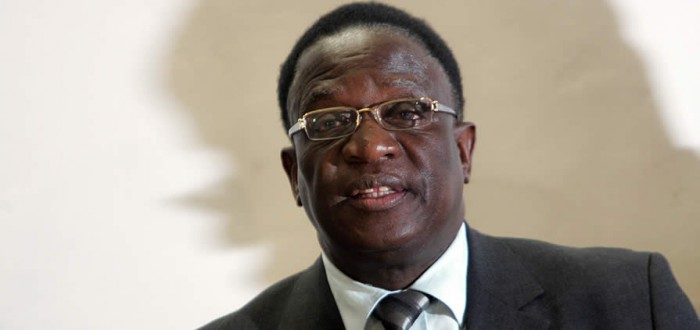


THE upcoming ZANU-PF congress is certain to go down to the wire in December as the revolutionary party is set to pick its two deputies via a secret ballot. Only President Robert Mugabe, who is ZANU-PF’s first secretary is safe, as he has already received the endorsement for another term from the Women and Youth Leagues.
The prospect of other party structures pulling the rug from under the veteran leader’s feet is slim, with certainty that the rest of the structures will follow suit and stampede to endorse President Mugabe as the party leader. President Mugabe himself, in several interviews with local and international media held earlier this year, has hinted that he has no intention of relinquishing power. Because no one in ZANU-PF has the guts to challenge him, the race for positions will affect the other posts.
According to Emmerson Mnangagwa, the ZANU-PF secretary for legal affairs, the December congress will use the secret ballot to pick the party’s two deputies. “That is what the [party] constitution says. If you read the constitution, it says delegates at the congress will vote through the one-man-one vote (system). That is what the party has been doing since 1963,” said Mnangagwa.
With this method in place, there is a threat posed to a certain extent on the position of the incumbent first VP Joice Mujuru, should any challengers emerge when the nomination process for candidates opens up. Outgoing Women’s League boss Oppah Muchinguri, at the 2009 congress unsuccessfully tried to challenge Mujuru. It still remains unclear if Muchinguri will make another attempt to challenge Mujuru in December given that she holds no current office within the party ranks — after relinquishing hers to the First Lady, Grace Mugabe last month.
But Mujuru’s own political clout in recent years has been growing significantly and it is unlikely that she is one to be easily upset at the congress, even if a secret ballot were to be adopted. Not only has Mujuru served for a decade as President Mugabe’s deputy both in government and in the ruling party, with innumerable instances where she has been acting Head of State in President Mugabe’s absence — seen as grooming for higher power by observers — but has also built up a strong bulwark of support in the party’s rank and file. Party structures such as provincial chairpersons, Youth League and Women’s League leadership are strongly viewed as sympathetic to Mujuru.
Mujuru undoubtedly appears well able to fend off any challenge at the congress as she enjoys not only a senior party position in the presidium, but also has support from the grassroots. However, uncertainty swirls even more over the choice for the second VP. Simon Khaya-Moyo, the ZANU-PF national chairman long viewed as the “natural” choice to fill in the vacancy appears set to face resistance from contenders who are now emerging out of the woodwork.
The intention by Khaya-Moyo’s rivals remains unclear; that is whether they genuinely harbour ambitions for high office and fancy their chances of jumping party hierarchy ahead of Khaya-Moyo or are merely upset at the fait accompli approach in which the former Zimbabwe ambassador to South Africa, Khaya-Moyo is being brandied about as the “natural” choice for high office.
Political observers expect a bitter fight to the end, as the race for the VP reaches its final stages and warn that the secret ballot at congress may only further muddle an already muddied ruling party. Khanyile Mlotshwa, a political commentator, said both the secret and open voting system had their disadvantages, which ZANU-PF had to be aware of before picking one over the other. “The secret ballot has a bigger disadvantage in that, as someone noted, the winning is not in the casting of ballots, but their counting. It is a process that is susceptible to vote rigging. I fear vote rigging and chaos,” said Mlotshwa.
Another political commentator, Zibusiso Dube, said there were likely to be surprises as a result of the secret ballot, as neither President Mugabe nor any other individual in the party would yield power to decide who assumes the VP positions. “It will now (boil) down to the two factions within ZANU-PF, which will obviously caucus clandestinely on their preferred candidate. The faction which has the bigger following will technically pick the successor,” said Dube.
Whether factions in ZANU-PF will agree to any concessions at the congress on how to pick its VPs is still yet to be seen, but what is evident is that the ruling party heads to a crucial defining moment in December — which could either make or break its dominance in the country’s political landscape for the last three decades.
newsdesk@fingaz.co.zw